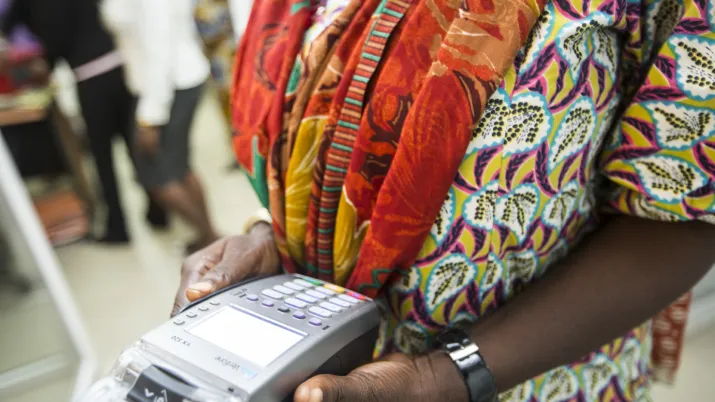Search results
Transforming municipal solid waste into a net carbon reducer
While municipal solid waste contributes relatively little to climate change, the waste management sector offers immediate, cost-effective and fast-acting opportunities to achieve substantial cuts in g...
News
Published on
Integrating the informal sector for improved waste management
In many cities of the developing countries, the informal sector plays an important role in managing municipal solid waste. The informal recovery of recyclables from the solid waste system reduces ove...
News
Published on
Linking public and private action for sustainable waste management
When it comes to managing waste in developing countries, the private sector can contribute technical skills, organisational capabilities and flexibility. Yet private sector involvement alone will not...
News
Published on
Cameroon own path towards municipal solid waste management
Cameroon's municipal solid waste management (MSWM) policy is based on a public-private partnership which ensures regular collection and processing service for domestic waste in the major cities. The m...
News
Published on
Municipal Solid Waste: turning a problem into resource
The management of municipal solid waste (MSW) is not just a public service, it is also an important economic sector. The sector is worth USD 390 billion in both OECD and emerging countries, and provid...
News
Published on
Good governance: accelerating growth and sustainable development
Good governance principles and a management infrastructure are vital to reflection on sustainable development requirements and to ensuring they are properly applied. It is the very essence of a partic...
News
Published on
Good corporate governance practices: constantly developing
Corporate governance appeared in the 1970s and has become a core component of the functioning of the private sector. It is both a process and a conceptual and organizational framework and is based on...
News
Published on
“I’m hopeful about emerging companies entering the world of venture capitalbacked start-ups”
Twiga Foods is a B2B marketplace platform that sources produce – initially only bananas – from farmers at above-market prices and delivers them to retailers at below-market prices, accomplished throug...
News
Published on
From the dream of a cashless Africa to a constantly expanding start-up: the Zoona story
Founded in 2009, the Zambian start-up Zoona is now in full expansion. Like all venture capital-backed start-ups, Zoona has been through its fair share of ups and downs. Its founder Mike Quinn gives us...
News
Published on
Supporting start-ups in Africa: Schneider Electric’s approach
In Africa, Schneider Electric implements a strategy based on supporting innovation, by taking a commercial approach tailored to people’s needs, managing two specialized impact funds which focus on soc...
News
Published on
Why and how does Orange finance innovation in Africa?
Africa, which has already experienced some entrepreneurial success stories, is powering up and seeing the emergence of a new generation of entrepreneurs in innovation. However, digital Africa still fo...
News
Published on
Supporting digital innovation ecosystems: what role for DFIs?
When it is properly supported, digital innovation can act as a powerful catalyst for achieving sustainable development goals (SDGs). Innovation dynamics are very important in Africa and play a key rol...
News
Published on
What role can DFIs play in promoting the development of the African venture capital ecosystem?
Over the past few years, a number of DFIs have announced the launch of venture capital investment programmes for Africa – initiatives that should help promote start-up activity across the continent, a...
News
Published on
Why are there so few unicorns in Africa and what are the key factors for success to help them emerge?
VC-backed African companies have just completed their first life cycle. The prospect of Africa generating unicorns is optimistic but achievable: it offers giant underserved markets, its companies and...
News
Published on
Venture capital in Africa: the long-term opportunity for investors
With a high population growth rate and a significantly rising GDP between 2007 and 2016, Africa undoubtedly represents a strong potential for investors. And despite some gaps, the venture capital mark...
News
Published on
(Français) Hôtellerie en Afrique subsaharienne : quels impacts sur le développement durable ?
Il semble essentiel d’accompagner le secteur hôtelier en Afrique subsaharienne au regard de son attractivité. Ce secteur particulièrement dynamique en Afrique présente de nombreux impacts en matière d...
News
Published on
The impacts of digital credit in Africa: beware of negative externalities
Demand for credit in Africa exceeds supply, despite the rise in mobile money. Yet start-ups, growing daily in number, are at risk of accelerating over-indebtedness, by supplying credit to clients with...
News
Published on
Counterfeit drugs – a global public health scourge
Along with Asia and Latin America, Africa is currently one of the regions most affected by the trade in counterfeit drugs which account for almost one-third of pharmaceutical products on sale in these...
News
Published on
Local production of medicine and accessibility challenges: the example of Pharmivoire Nouvelle
Pharmivoire Nouvelle is a pioneering manufacturer of medical intravenous solutions in Côte d’Ivoire. Its 25 years’ experience are proof that locally-based production of pharma products is a realistic,...
News
Published on
Quality medicines in Africa: the importance of good knowledge of the supply chain and synergy between regulato...
Pharmaceutical production grew globally over the last decades: active ingredients and finished products are manufactured across different regions, and circulate through multiple distribution channels....
News
Published on




















